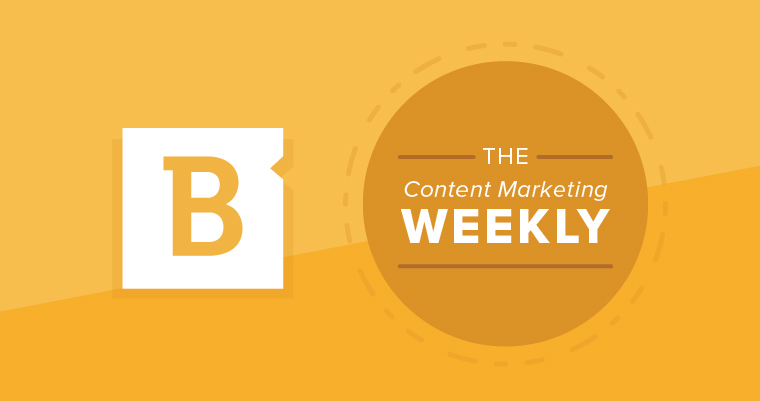The beginning of June basically marks the unofficial start to summer. Kids are already or almost out of school for break, bumblebees are doing their flower pollination thing and outdoor grilling and wedding season is practically in full swing. Although the real summer season doesn’t kick off until June 22, I think we can all agree – it’s time for flip flops, jorts and swimsuits.
Awww, yessss.
But before you find your favorite shades, fill up your cooler and head to the beach or lakefront, we’re here to bring you up to speed on all things content marketing.
This week, we’re focusing on online advertising, including PPC strategies and social media advertising. Let’s dive on in:
Top 4 Reasons SMBs Should Use Paid Search
First up, an article from MarketingProfs on the advantages of paid search, or pay-per-click (PPC) advertising. Overall, there’s a bit of a dichotomy when it comes to PPC – some advertisers swear by it, particularly given the fact that PPC puts your brand front and center of search results. However, some consumer audiences have reported distrust in paid ads, while others simply can’t tell the difference between PPC and organic search results.
All this aside, when done correctly, PPC can bring another level to your advertising strategy, and as MarketingProfs contributor Kenneth Andrew noted, this is especially true for SMBs. As these organizations typically have a very tight budget for their advertising spend, PPC can provide a bit more bang for the buck.
Seeing dollar signs yet?
“Rather than pay a set price to run an ad for a specific length of time, with PPC advertising businesses only pay when someone actually clicks the ad,” Andrew explained.
He then digs into four advantages that PPC can offer SMBs, including supporting brand visibility, cost-efficiency for marketing spend, engagement with the brand’s target audience and overall ease-of-use.
Check out the full article here to read more.
Can Facebook Ads Influence Integration Adoption? Here’s What We Found.
In addition to PPC, many advertisers also regularly leverage social media within their strategies, including Facebook Ads. The team over at HubSpot recently turned their attention to Facebook’s advertising platform and engaged in an experiment to see how paid ads affected adoption of app integration.
“We hypothesized that we could influence the adoption of an integration through paid ads,” wrote HubSpot contributor Christine Ianni. “…By leveraging Google Tag Manager on the in-app integration directory, custom UTM parameters, and funnel reports, we were able to measure all steps from viewing the ad to installing the integration.”
The team’s test centered around Facebook ads for three of its integrations: Slack, WordPress and Eventbrite. Ianni and other experiment stakeholders evenly split their spend across all three spots, and ran the ads from November to December.

The results were pretty positive and supported the team’s initial prediction that integration adoption could be influenced by Facebook advertising. In fact, the results surpassed HubSpot’s targets for click-through rates, cost per click and cost per acquisition.
“Our experiment with paid ads outperformed our expectations and helped us reach a larger audience than we anticipated,” Ianni wrote. “It became clear that this was and is a viable channel for us to increase adoption of integrations and better understand the cost per integration install.”
Facebook Ads Manager Issues Are Causing Major Headaches For Advertisers
Although the HubSpot team reported a good experience with Facebook Ads in its use case, other advertisers are dealing with the exact opposite. In the latest blow to the social media giant’s brand, users have reported problems with their backend ad management since the site experienced an outage just before Black Friday last year. According to Marketing Land’s Amy Gesenhues, some users couldn’t access their campaign information, download reports or upload their creative content.
Facebook Ads Manager problems have left some advertisers feeling like this.
Since the outage, users have noticed a marked decline in the overall performance, including problems with publishing ads, turning off campaigns and inconsistent results persisting through today.
“Since the large outage last year before Black Friday, Facebook as a platform has performance swings on a daily basis,” John Bolling, head of ROAS Media, told Marketing Land. “It seems the Ads Manager is just breaking piece by piece due to years of neglect and lack of innovation.”
The problem here goes beyond frustrating performance – one organization was unable to run its Mother’s Day Facebook ads, resulting in $600,000 of lost revenue and opportunity to connect with its audience.
Although users are praising Facebook’s customer service team for their kindness and understanding, Ad Manager issues are rooted in the tech side of the platform, and so far, there hasn’t been a permanent fix. Facebook reps also declined to comment on its Ads Manager when Marketing Land reached out.
Check out the full story here.
Cars.com vs. CarGurus.com Saga Shows The Importance Of SEO (And The Bad Side Of A Google Update)
While this last one isn’t directly connected to advertising, it is a fantastic real-world lesson in the benefits of a high-quality linking strategy. Search Engine Land’s Barry Schwartz discussed the considerable gains Cars.com saw following Google’s March 2019 update – to the tune of a 49% increase in search visibility.
CarGurus.com, on the other hand, saw almost the exact opposite, including a 30% drop in its keywords in Google. Despite CarGurus.com working to build up its linking around December 2017, a presentation from Cars.com shows that CarGurus.com had been leveraging “blackhat” linking and cloaking strategies. In other words, CarGurus.com was linking back to low-quality sources, as was attempting to use cloaking as a means of dynamic rendering.
“Cloaking is against Google’s webmaster guidelines but dynamic rendering is not,” Schwartz explained. “This was allegedly done in order to hide content, remove ads from Google’s view, inject more keywords and manipulate crawl.”
Check out the full story here.
And be sure to check back for next week’s Content Marketing Weekly update.
Until then, enjoy the warm weather and soak in the sunshine (but don’t forget your sunscreen).
Aspire to this level of summer chill.




